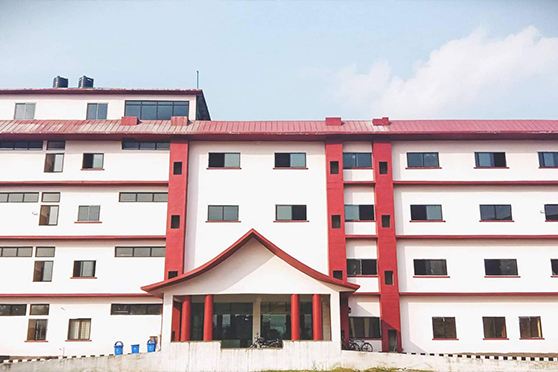IIT Guwahati’s first-of-its-kind Centre for Nanotechnology gets advanced facilities


Indian Institute of Technology (IIT) Guwahati has set up advanced micro electronics and nano energy facilities at its Centre for Nanotechnology, which was inaugurated by Union education minister Dharmendra Pradhan in November.
The centre has been funded by the Ministry of Education (MoE) and the Ministry of Electronics and Information Technology (MeitY).
According to IIT Guwahati officials, the institute has been working in the field of nanotechnology since early 2000 and has a proven record in multiple areas of nanoscience and nanotechnology. This is a first-of-its-kind centre in the entire Northeast, the officials added.
IIT Guwahati director T G Sitharam said, “This centre has established state-of-the-art facilities for nanofabrication and is poised to make major contributions in the areas of nanodevices development for healthcare, renewable energy-photovoltaics, light-emitting diodes, thin-film transistors, sensors, and other allied areas. The faculty and scholars at this centre have demonstrated translational research capability, resulting in several technology transfers and establishing a few centres for excellence as well.”
Dipankar Bandyopadhyay, head of the Centre for Nanotechnology at IIT Guwahati, stressed, “The centre aspires not only to become one of the major fountainheads of scientific and technological innovation in the country but also in the global scenario. The major targets would be to establish world-class facilities, publish high-impact research, patent translational research, transfer technology to the industry, and train highly-skilled research scholars who are ready to push the barriers of cutting-edge science and technology.”
Bandyopadhyay explained that the key outcomes expected from the Centre for Nanotechnology include nano-enabled healthcare, energy harvesting and LED prototypes, devices and technologies.
“The startup and incubation ecosystem plans to nurture at least 25 start-ups in the next three years,” he said, adding that the other outlined plans for the centre include capacity building of highly skilled manpower in the domain of nanofabrication and nanoelectronics; setting up of a health data analytics ecosystem -- including rural health and wellness centres -- around an electronic health record software; and innovating point-of-care testing devices.
The centre was started with the aim of meeting challenges in and augmentation of academic partnerships with industry in nanotechnology. It will carry out multidisciplinary translational research in the sectors of healthcare, nano biomaterials, micro and nano electronics, nano-energy devices and sensors.